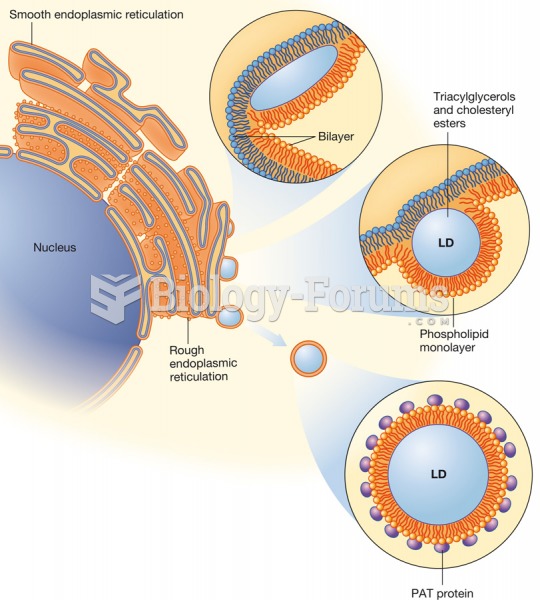|
|
|
Vaccines cause herd immunity. If the majority of people in a community have been vaccinated against a disease, an unvaccinated person is less likely to get the disease since others are less likely to become sick from it and spread the disease.
Eating carrots will improve your eyesight. Carrots are high in vitamin A (retinol), which is essential for good vision. It can also be found in milk, cheese, egg yolks, and liver.
Human neurons are so small that they require a microscope in order to be seen. However, some neurons can be up to 3 feet long, such as those that extend from the spinal cord to the toes.
Adolescents often feel clumsy during puberty because during this time of development, their hands and feet grow faster than their arms and legs do. The body is therefore out of proportion. One out of five adolescents actually experiences growing pains during this period.
Oliver Wendell Holmes is credited with introducing the words "anesthesia" and "anesthetic" into the English language in 1846.
 Common locations of venous thrombosis. (A) The most common sites of deep vein thrombosis. (B) DVT ex
Common locations of venous thrombosis. (A) The most common sites of deep vein thrombosis. (B) DVT ex
 Apply deep circular friction with the fingertips to the erector muscles on the right side, moving ...
Apply deep circular friction with the fingertips to the erector muscles on the right side, moving ...





